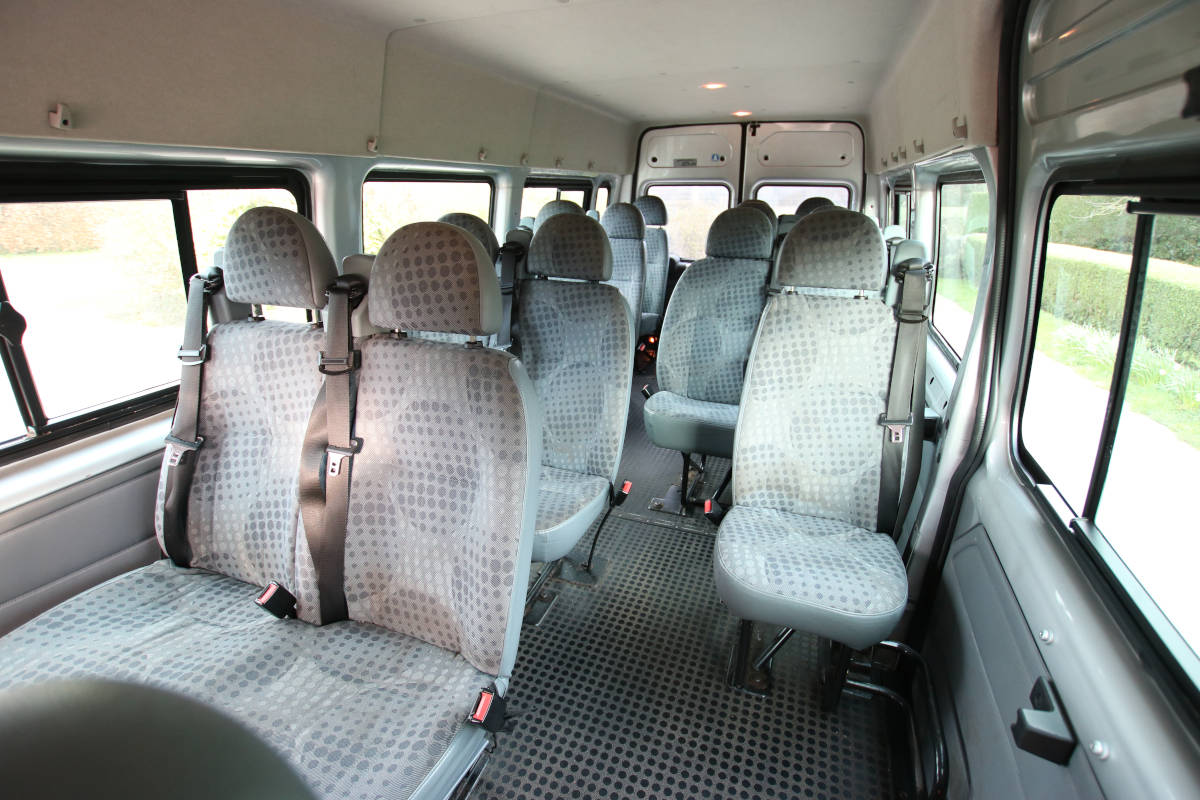
Open in New Window
Open in New Window
For reliable, comfortable professionally organised group travel services in Monmouthshire and surrounding areas, call ASC Phillips. Whatever size of group you need to move, they can be accommodated in modern, well equipped vehicles, driven by experienced, DBS checked drivers. The vehicles avaible are:
- Minibuses, 8-16 seat
- 36 Seat coach with luggage space
- 53 Seat executive coach with luggage space
- 70 Seat coach with luggage space

--Request Information-- --More Images Like This--Photo from Featured Project near Alvington
Minibus travel is ideal for small groups
From eight to sixteen people can travel together in one of our minibuses. There is one the right size for every party, All are modern, well equipped, spacious and comfortable. All the drivers are DBS checked, helpful and professional.
Minibus travel is ideal for small groups
From eight to sixteen people can travel together in one of our minibuses. There is one the right size for every party, All are modern, well equipped, spacious and comfortable. All the drivers are DBS checked, helpful and professional.
Get your group travel arrangements on the road and call us now, or click in the header of any page to get a quote.
Alvington : One of a series of small hamlets that grew up along the Roman military coast road that led from Newnham to Chepstow, Alvington was a manor by late Saxon times and in the Doomsday Book survey of 1086 it had in Lordship (i.e. under control of the Lord of the Manor) 2 ploughs; 12 villagers with 9 ploughs; they pay 20 looms of iron and 8 sesters of honey'. As with some other places in the Forest, Alvington was originally part of Herefordshire and it only became part of Gloucestershire in the 13th century when it was absorbed into the Bledisloe Hundred and made a separate parish.
At this time, the manor and much of the parish was owned by Llanthony Priory in Gloucester and Alvington Court, a 16th century Elizabethan house that lies east of the village along Court Lane was probably built on the site of an early grange of the Priory. The oldest building in the village is the Church of St Andrew, built by Llanthony Priory around 1140 at which time it was dedicated to St Mary. Its dedication was changed in 1523 and in 1858; the church was radically restored, losing much of its original stonework apart from one small Norman window in the chancel.
Alvington is located on the lower slopes of the Severn escarpment, about 5 kilometres south-west of Lydney. It is bisected by the A48 trunk route. The village originally developed in a linear form along the main road. This part of the village is still characterised by older terraced properties along the A48. To the north of the A48, more recent development has taken place off Clanna Lane including an estate of over sixty houses. To the south-east of the main road, development occurred initially in the form of small cottages in large plots. Subsequently, a variety of bungalows and houses have been constructed in this area, although it still retains an open spacious character. The minor roads in this part of the village are generally unsuitable for additional traffic, and their junctions with the A48 are unsatisfactory. The majority of the village lies within a Conservation Area.

